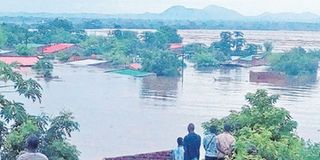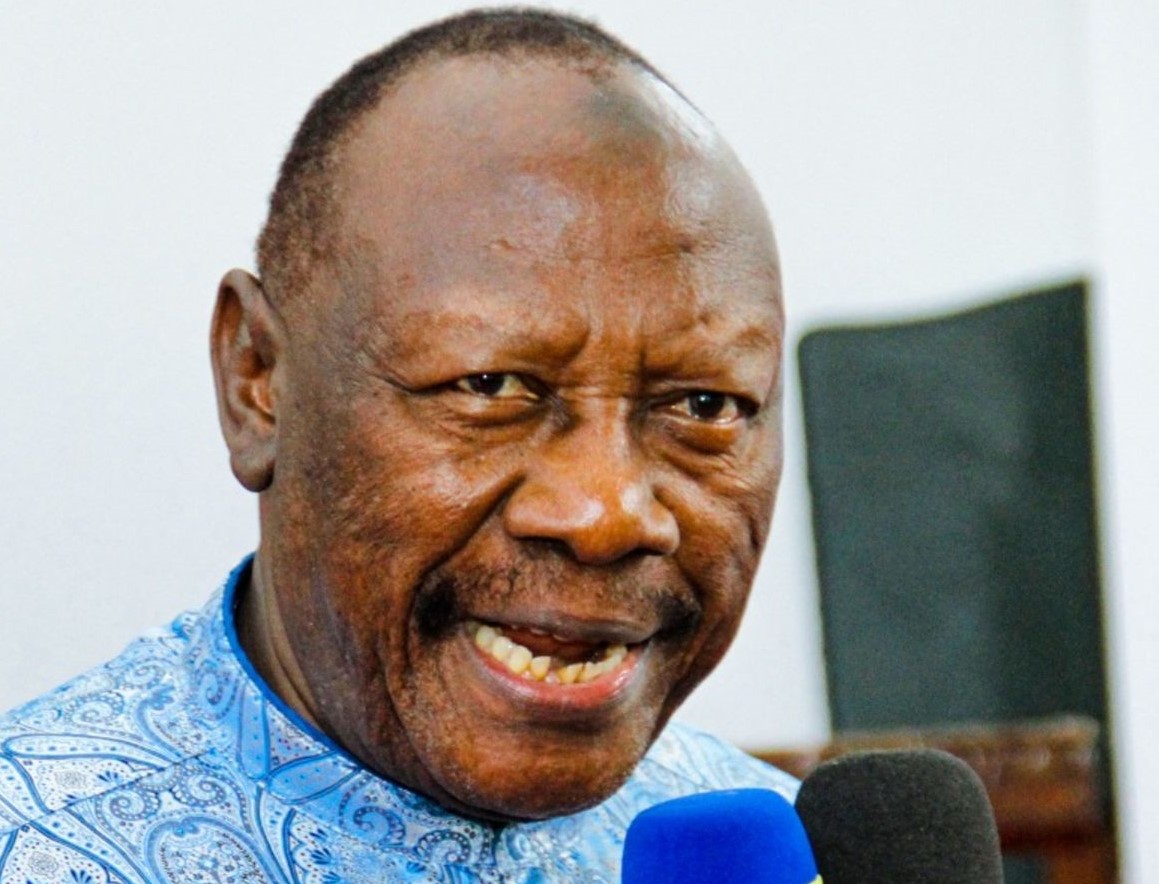The vicious cycle of climate change and illicit money in Africa

What you need to know:
Although Africa is endowed with natural resources, it often fails to reap the benefits because the extractives sub-sector is among those most responsible for illicit financial flows, according to the Natural Resource Governance Institute
Dar/Harare. Tinozivei Mabanga, 43, from Chipinge looks at the dark clouds above with fear and trepidation. Although he is a farmer, the Zimbabwean father of four has every reason to fear the coming rains.
“I still have trauma over what happened in March when Cyclone Idai ravished most of this area, and the fact that another rain season is upon us once again and I don’t have a permanent structure to lay my head down makes things worse,” said Mabanga, who lost three close relatives to the disaster.
A study conducted by the International Organization for Migration indicated that 270,000 individuals were affected by the cyclone and that 50,905 people in 12 districts were displaced, while 223 households still reside in displacement sites.
In Chipinge, the southeastern district in Zimbabwe that was one of the areas worst affected by the cyclone, victims are desperate for permanent shelter and a normal resumption of their livelihoods.
“Despite assistance from donors and well-wishers, most of our infrastructure is yet to be repaired, roads and bridges are still broken, while electricity lines are yet to be fixed,” Mabanga said.
The United Nations special rapporteur on the right to food, Hilal Elver, warned in November that Zimbabwe is on the brink of a major man-made famine due to a combination of drought and economic mismanagement.
Cyclone Idai left a trail of destruction when it hit Malawi, Mozambique and Zimbabwe, leaving at least 1,000 people dead in the three southern African countries. Climate change has made such storms more frequent and more extreme.
While the World Bank estimates that the governments in the region have to raise at least US$2 billion needed to bring the damaged infrastructure back to normal, analysts say there is need for Africa to tackle climate change by raising funds from multinationals.
Though Africa is endowed with a lot of natural resources, it often fails to reap the benefits because the extractive sector is among those most responsible for illicit financial flows (IFFs), according
to the non-profit advocacy group the Natural Resource Governance Institute (NRGI).
“Africa urgently needs funding for climate change adaptation. Plugging the illicit flow of money out of the continent would be a good place to start,” said Dr Richard Munang, United Nations Environment Programme’s Africa Regional Climate Change Programme Coordinator.
Munang noted that Africa, which loses US$50 billion every year through IFFs, according to a report by the United Nations, requires an average of US$10 billion each year for climate adaptation.
“The international community has attempted to get some financial assistance to meet these costs from developed countries. But there is a huge discrepancy between the amounts required and what has been secured so far. It seems clear that relying on external aid is a risky strategy and Africa needs to find ways to reduce IFFs, especially from international mining firms, which are largely responsible for global warming,” he said.
In just one example of how companies operate to reduce their tax liability, thereby depriving governments of revenue, Tanzania’s Tancoal Energy Limited (Tancoal) has been accused by a government agency of siphoning millions of dollars out of the country through systematic and well-coordinated manoeuvres.
While Cyclone Idai did not impact Tanzania, the country, like most of Africa, has suffered from climate change and related hazards such as floods and droughts, which have substantially affected economic performance and undermined poverty reduction efforts.
Information from the United Nations Development Program shows that frequent and severe droughts in many parts of the country are being felt with their associated consequences on food production and water scarcity, among others.
This has resulted in economic experts calling for remedial actions from companies such as Tancoal, which are not only failing to contribute significantly to economic development, but also not doing much to mitigate effects of climate change.
A review of payment vouchers conducted by Tanzania’s Controller and Auditor General (CAG) for three consecutive years from 2014 through 2016 noted that the coal miner – 70 percent owned by Australia’s Intra Energy Corporation (IEC) and 30 percent owned by the Tanzanian government’s National Development Corporation (NDC) – incurred
expenditure amounting to Sh940.34 million (about US$404,000).
However, the expenditure was not directly related to mining and other operational activities in accordance with the joint venture agreement and since 2011 to 2016 a total of US$3.36 million was paid to meet expenses for mining operations for Tanzacoal in Malawi, a subsidiary of Intra Energy.
Due to the fact that exploration activities ended in 2012, the auditor general also noted unrealistic exploration expenditures amounting to Sh6.58 billion after analysing the financial statements from 2011 to
2016. The amount also was overstated by Sh880.71 million.
“Inclusion of these unrealistic costs in the financial statements during the period reduced the profitability by the same amount leading the company to make a loss. Thus, the government could neither receive dividend nor collect taxes from the company,” the auditor general said.
Tancoal also was found to have made an improper payment to its Australian parent as management fees amounting to Sh7.26 billion between June 2013 and March 2017, which was recognized as a loan hence raising current liabilities for each respective accounting year.
“The improper payment of management fees may lead to increase in expenditure which denies the company to make profits and paying government taxes. It is recommended that, all transactions relating to management fees paid should be recovered by Tancoal,” the CAG warned.
Efforts to get Tancoal to comment on the concerns raised by the CAG in the report did not bear any fruit despite repeated emails and phone calls over more than two weeks.
However, in an October update to the public, IEC chairman, Graeme Robertson indicated that Tancoal was continuing discussions with the Tanzanian government to seek amicable resolution of the past royalty and clearance fees.
“(The company) fully believes that cooperation can achieve far better outcomes than disputation and has engineered a number of changes to facilitate dialogue with the government to achieve a win-win result,” he said.
Asked what had been done to implement his agency’s recommendations, the newly appointed Auditor, Mr Charles Kichere, said the National Development Corporation, which represents the government’s stake in Tancoal, was responsible for implementation.
Damian Gabagambi, the director general of the National Development Corporation, said they have worked on the report’s recommendation and given feedback to the CAG.
Tax issues were also at the heart of a long-running dispute over Acacia Mining, the largest gold producer in Tanzania, which was recently dissolved after parent company Barrick Gold of Canada reached a settlement with the government including payment of $300 million in taxes and other fines.
The government had charged that Acacia never paid any taxes despite operating in the country for more than two decades. Under the settlement, a new company named Twiga Minerals was formed and it will give a 50/50 benefits to both partners.
Logan Wort, the African Tax Administration Forum (ATDF) executive secretary, said many African governments are struggling to properly collect tax from multinational firms in the extractive sector, who use sophisticated digital means to avoid paying them.
“The current nexus and profit allocation rules are not ensuring appropriate tax rights for African countries,” he said.
“This is partly due to the increasing digitalisation of the global economy and the African economy which enables non-residents and in particular multinational enterprises to increasingly carry out business in a source country, but with most of the profits being kept in low tax jurisdictions.”
Wort noted that the current rules provide an inappropriate balance between the taxing rights of residence and source jurisdictions and are inappropriately skewed in favour of residence jurisdictions.
“This is encouraging illicit financial flows out of Africa through artificial profit shifting to no or low tax jurisdictions and the loss of taxes African countries needs for vital development,” he added.
In Zimbabwe, environment ministry climate change director Washington Zhakata said the government is set to introduce a raft of measures aimed at combating climate change and reduce carbon emissions as a way of improving livelihoods.
“To concretise climate action and ensure compliance with the multilateral environmental agreement on climate change, the government is in the process of having consultations on a Climate Change Bill,” he said in an interview.
He added that the new law will require companies fueling carbon emissions to be engaged in activities that reduce effects of climate change. Firms that violate this regulation will be liable to a fine.
Zhakata also said government was in the process of setting up a Climate Change Fund, which is critical for repairing damaged infrastructure and providing relief in affected areas.
“The funding gap for resilience building still remains enormous and requires the mobilisation of internal resources that can be used for targeted strategic interventions and to leverage international resources by providing co-financing,” he said.
While efforts are being done to rebuild infrastructure and ensure that a similar calamity does not have the same devastating consequences, Chimanimani was struck again in November by a tropical storm that destroyed three schools in the area.
“Our lives are now in God’s hands,” said a sorrowful Mabanga. “We no longer feel safe in our area and honestly no one knows what will happen to us as the rain season progresses.”



